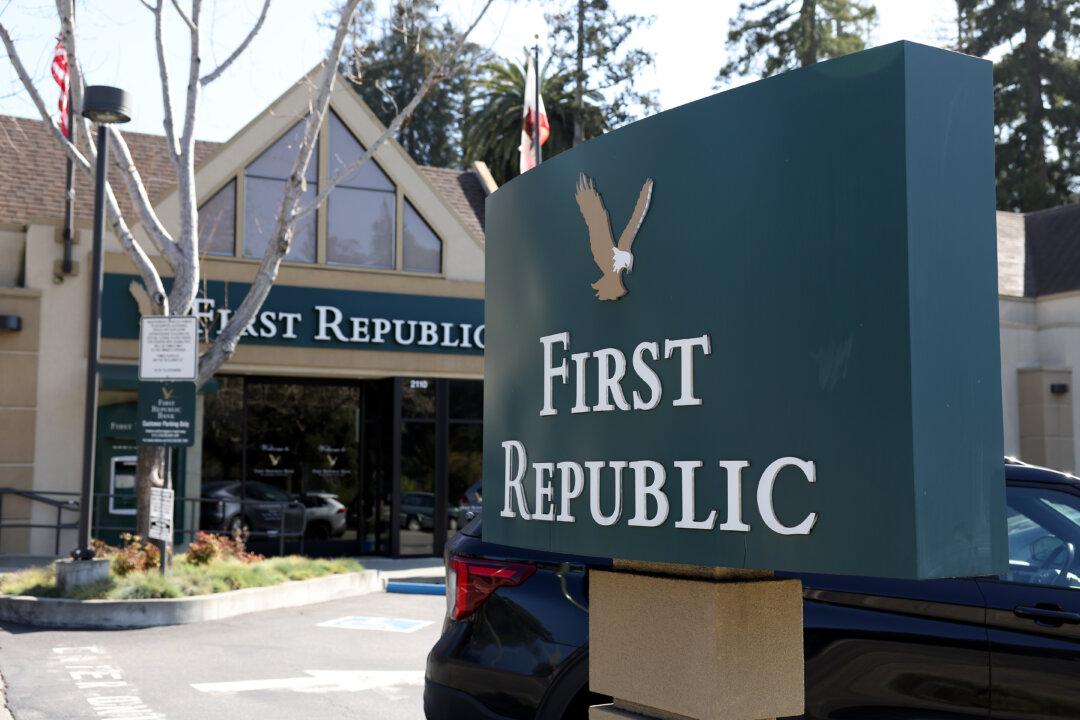Banks have borrowed a combined total of $164.9 billion from the Federal Reserve in recent weeks following the collapse of Silicon Valley Bank (SVB), data published by the central bank show.
According to Fed statistics released Thursday, banks borrowed $152.85 billion from the central bank in the week ending March 15 using the Fed’s traditional discount window—known as discount window lending—which provides loans for periods up to 90 days.




